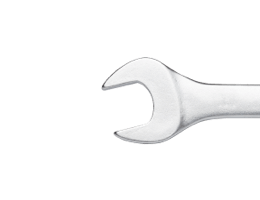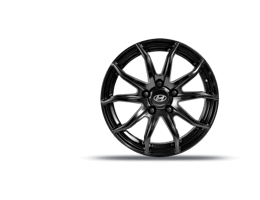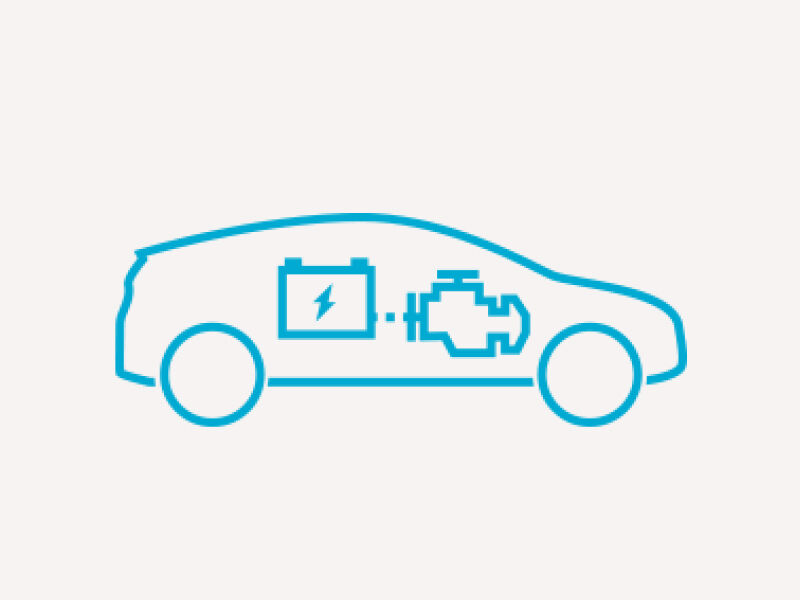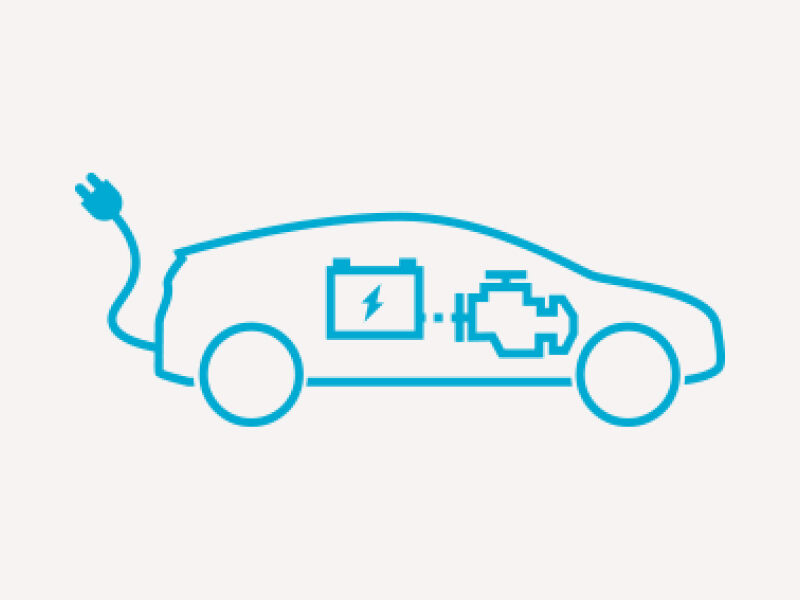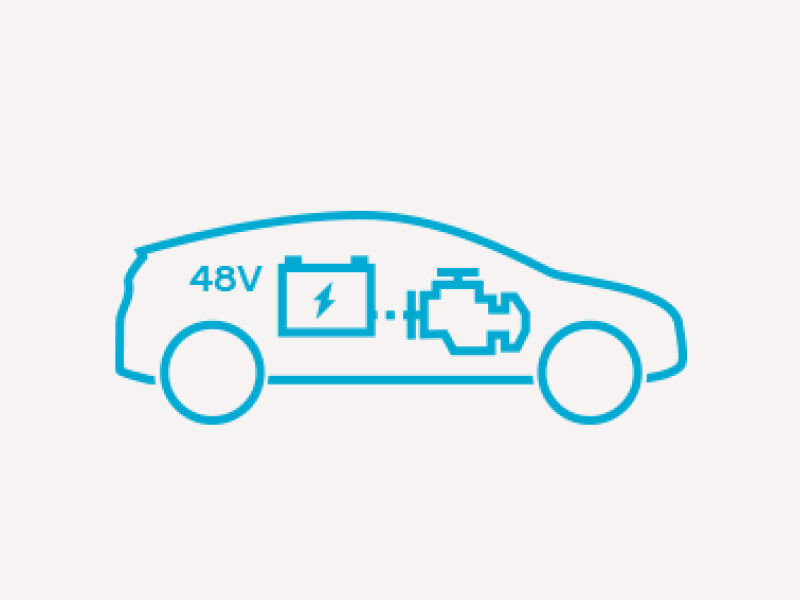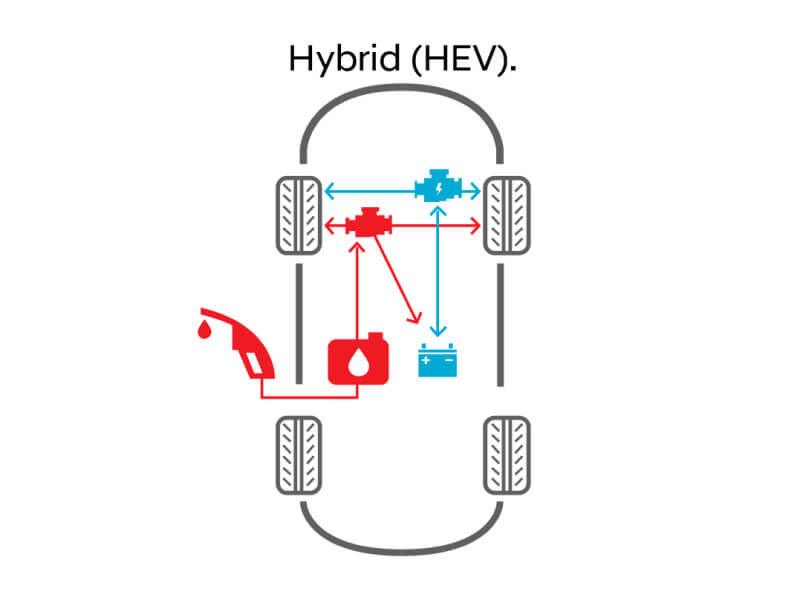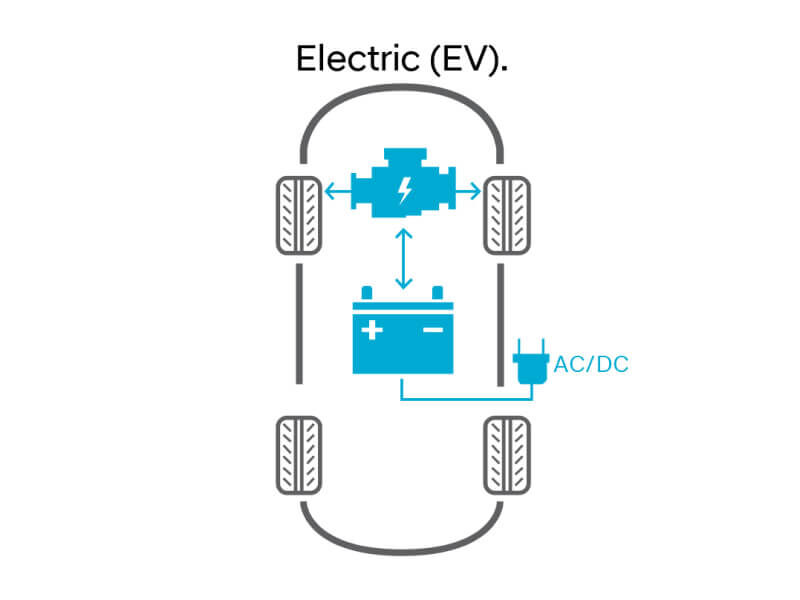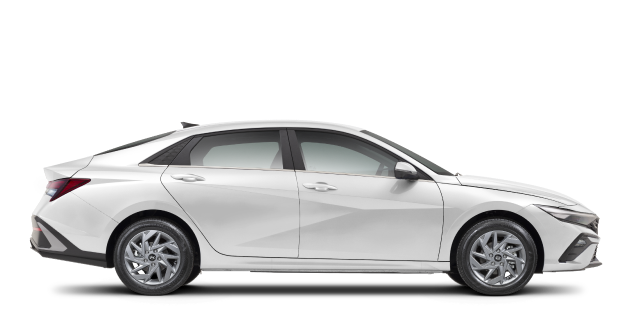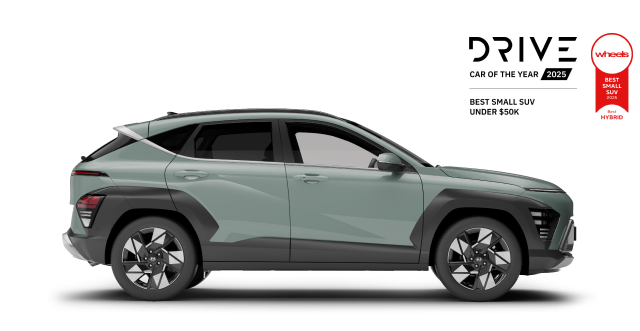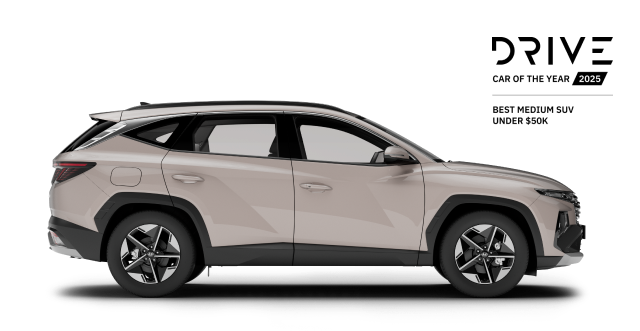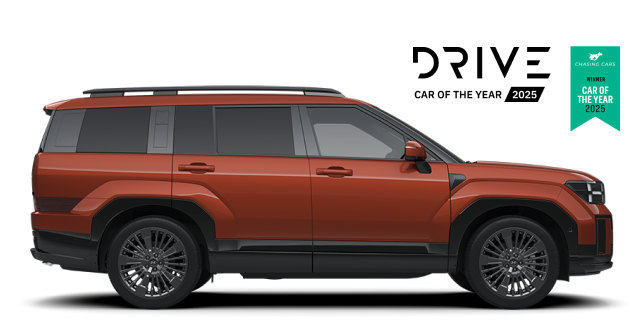The highlights of hybrid cars.
Thinking of driving hybrid? Hyundai is at the forefront of hybrid technology innovation, making it easier than ever to enjoy balanced efficiency without the compromise.
Our hybrid vehicles are plug-free, seamlessly switching between petrol and electric power, giving you a ride that’s effortlessly smooth, brilliantly smart, and ready for whatever the road throws your way.
What makes a car a hybrid?
The Hyundai Hybrid advantage.
- Improved Fuel Efficiency
Electric motors enhance fuel efficiency compared to traditional petrol vehicles, reducing fuel consumption and lowering running costs. - Lower Driving Emissions
The integration of electric motors in hybrid cars helps reduce CO2 emissions, contributing to a cleaner environment. - Smoother and Quieter Drive
The electric motor in hybrid cars provides a quiet and smooth driving experience, especially at low speeds. - Prime Performance
The combination of energy sources means hybrids can deliver superior range compared to electric cars and better efficiency than petrol cars.

Under the hood: how do hybrid engines work?
Hybrid engines use an energy management system to optimise performance. The electric motor assists the petrol engine when needed, reducing fuel consumption and emissions. The battery is automatically charged through driving, eliminating the need for plug-in charging in conventional hybrids.
This smart system captures and recycles energy through regenerative braking, helping to extend your driving range and reduce fuel consumption. Hyundai’s range of hybrids are engineered with cutting-edge technology, including features like Smartstream technology, adaptive regenerative braking, and optimised power distribution, that maximises efficiency without sacrificing performance.
How do hybrid engines switch between electric and petrol?
Hybrids work by intelligently harmonising their electric motor and petrol engine. Rather than simply alternating between the two, these systems often use both simultaneously—especially during times of high power demand—to deliver efficient performance that adapts to your driving conditions.
- At low speeds:
The electric motor powers the vehicle, reducing fuel consumption. - During acceleration:
The petrol engine and electric motor work together for extra power. - While cruising:
The car maintains fuel efficiency by using a combination of the engine and electric motor as needed, adapting to factors like speed, load, and battery state. - During braking:
The regenerative braking system captures energy and stores it in the battery, extending driving range.
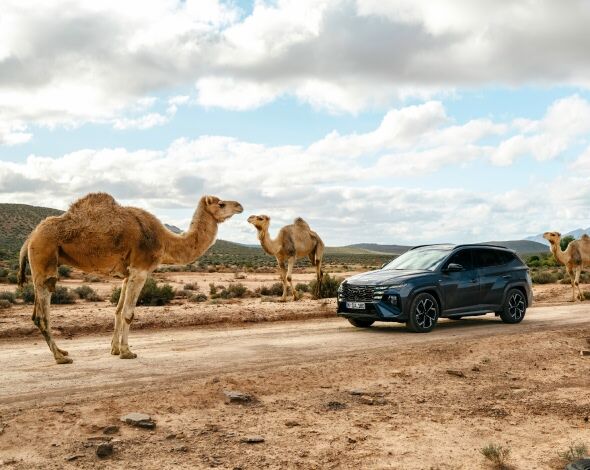
What’s regenerative braking?
Regenerative braking converts and stores kinetic energy into electricity during deceleration or braking, helping to improve efficiency while you drive.
Do hybrid cars need to be charged?
Most hybrid vehicles, like the ones in Hyundai’s range, are self-charging through regenerative braking and the petrol engine, in other words, they don’t need to be plugged in or charged. However, plug-in hybrids (PHEVs) require external charging to maximise their electric driving capability.
Choosing the right hybrid for you.
With different hybrid options available, it’s important to understand what suits your driving needs..
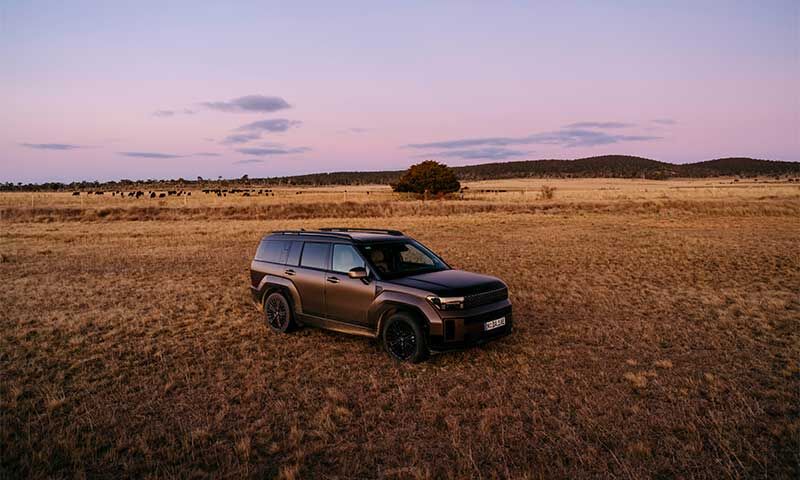
Standout hybrid design.
Who says hybrid efficiency can’t look stylish? Hyundai’s design philosophy blends aerodynamics, advanced technology, and intuitive engineering to create hybrids that turn heads while turning down your fuel costs. Whether it’s the sleek sophistication of a sedan or the versatility of an SUV, Hyundai hybrids are built to deliver an engaging, efficient, and dynamic driving experience.
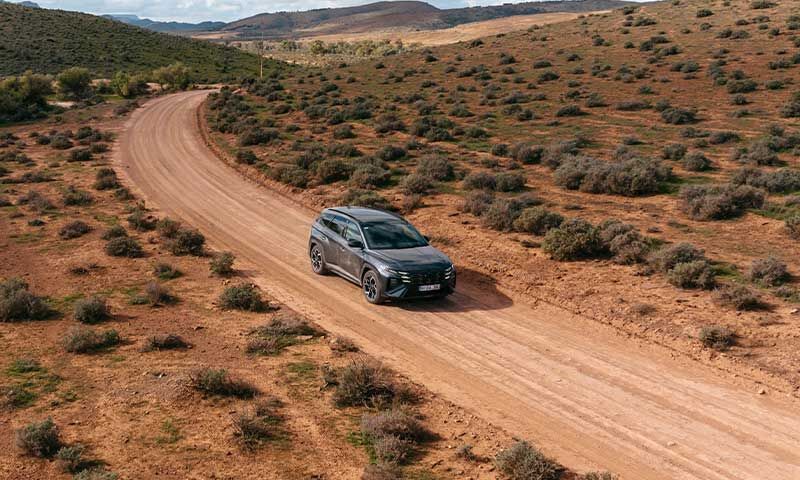
SUV practicality, hybrid efficiency.
Hyundai offers hybrid SUVs that balance efficiency, space, and power, perfect for families, adventurers, and road trips alike. There's a common misconception that hybrids are only for city driving, but Hyundai hybrids are built for more. With advanced all-wheel drive options (available in including SANTA FE and the TUCSON’s Elite and Premium variants) alongside spacious interiors, and rugged capability, they’re designed to handle family life, weekend getaways, and even off-the-beaten-path adventures with ease.
EV vs hybrid: which one suits you best?
Our performance-ready hybrid batteries.
How long does a hybrid battery last?
Hybrid batteries are built to last, typically offering 8-10 years or 160,000-200,000 km before showing signs of reduced efficiency, though this can vary significantly depending on usage and climate. Hyundai provides 8-year/160,000 Km (whichever occurs first) warranties* to give you peace of mind.
*High voltage (HV) batteries fitted to electric (EV), Plug in Hybrid (PHEV) and Hybrid (HEV vehicles are covered by – 8 year/160,000km warranty.
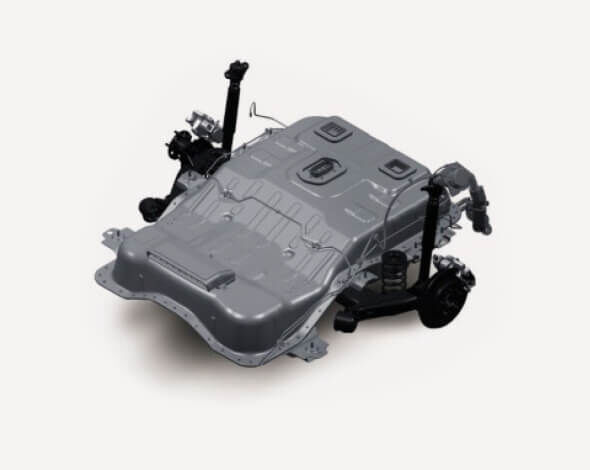
Environmentally friendly recycling programs.
Committed to sustainability, Hyundai ensures that hybrid batteries are responsibly managed at the end of their lifespan. Recycling programs recover valuable materials, reducing waste and minimising environmental impact. Hyundai is also actively researching second-life applications for hybrid batteries, repurposing them for renewable energy storage solutions, contributing to a cleaner, more sustainable future.
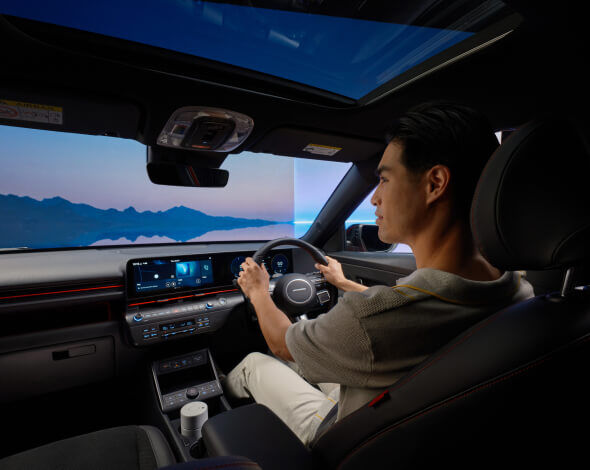
Ready to enter your hybrid era?
FAQs.
-
Hybrid technology has advanced significantly since first hitting the market, offering better performance, efficiency, and sustainability than ever before. Hyundai's latest hybrid innovations include next-generation Smartstream engines, enhanced regenerative braking systems, and intelligent energy distribution for maximised fuel savings. Additionally, Hyundai hybrids now feature improved regenerative braking customisation, battery technology with greater longevity and innovative recycling solutions, ensuring a smarter and more sustainable driving experience.
-
Absolutely! Hyundai hybrids are designed to lower fuel costs, minimise environmental impact, and provide cutting-edge technology for an enhanced driving experience. With industry-leading warranties, smart energy management, and a commitment to sustainability, Hyundai hybrid vehicles offer long-term value and reliability.
-
The power electronics controller manages the flow of electrical energy from the traction battery, controlling the speed and torque of the electric traction motor. This ensures smooth performance and efficient energy use.
-
The thermal system regulates the temperature of the engine, electric motor, and power electronics. Maintaining an optimal temperature improves efficiency, prolongs component life, and ensures peak performance.
-
The DC/DC converter takes high-voltage power from the traction battery pack and converts it to a lower voltage to power vehicle accessories and recharge the auxiliary battery.
Meet the Hybrid range.
Disclaimers.
[B1] Battery warranty covers the High Voltage battery only.
[B2] All new Hyundai Blue-drive vehicles are backed by an 8-year or 160,000km High Voltage battery warranty. For full terms and conditions of the warranty, visit Warranty Terms and Conditions.
